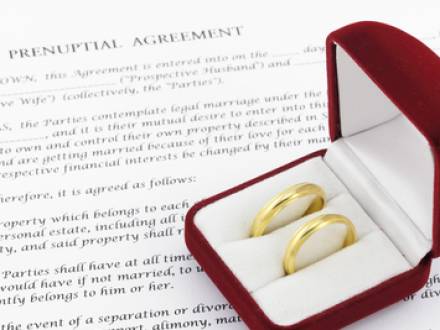Recent Blog Posts
How Does Seasonal Living Complicate Child Custody for Snowbird Families in Florida?
 More and more families are embracing a lifestyle that spans multiple states. Whether due to remote work, flexible schooling, or a desire to own property in different climates, the traditional snowbird model that was once limited to retirees is now being adopted by younger parents and their children. While this arrangement may offer lifestyle benefits, it can also create complicated legal challenges when parents separate or divorce. One of the most pressing issues involves child custody.
More and more families are embracing a lifestyle that spans multiple states. Whether due to remote work, flexible schooling, or a desire to own property in different climates, the traditional snowbird model that was once limited to retirees is now being adopted by younger parents and their children. While this arrangement may offer lifestyle benefits, it can also create complicated legal challenges when parents separate or divorce. One of the most pressing issues involves child custody.
As of June 2025, Florida courts continue to rely on well-established state laws and national standards to determine jurisdiction and parenting arrangements, even in cases involving families who live seasonally in multiple states. If you are a snowbird considering divorce, speak with a qualified Miami, FL divorce lawyer to understand the options and implications.
Ancillary vs. Summary Administration During Probate
 Florida probate can be a complicated process, especially when someone passes away owning property in more than one state. Two forms of probate administration commonly arise in these cases: ancillary administration and summary administration. As of June 2025, the Florida Probate Code continues to distinguish between these two paths based on the location and value of the decedent’s assets. Understanding the difference is essential for surviving family members, executors, and anyone handling cross-state estates. Knowing which probate process is right for your family will depend on the circumstances, and our Miami, FL probate and family law attorneys are here to help.
Florida probate can be a complicated process, especially when someone passes away owning property in more than one state. Two forms of probate administration commonly arise in these cases: ancillary administration and summary administration. As of June 2025, the Florida Probate Code continues to distinguish between these two paths based on the location and value of the decedent’s assets. Understanding the difference is essential for surviving family members, executors, and anyone handling cross-state estates. Knowing which probate process is right for your family will depend on the circumstances, and our Miami, FL probate and family law attorneys are here to help.
What Is Ancillary Administration in Florida?
Ancillary administration is used when a non-Florida resident dies owning property in Florida. The main probate case is handled in the person’s state of residence, but a separate proceeding — called ancillary administration — must be opened in Florida to deal with real estate or tangible assets located here.
How Fast Can You Get Divorced in Florida?
 Many people who file for divorce in Florida want the process to move quickly. Whether the marriage ended peacefully or followed months of conflict, most divorcing spouses prefer to move on with their lives without unnecessary delay. But how fast can a divorce actually happen in Florida — and what can you do to speed things up?
Many people who file for divorce in Florida want the process to move quickly. Whether the marriage ended peacefully or followed months of conflict, most divorcing spouses prefer to move on with their lives without unnecessary delay. But how fast can a divorce actually happen in Florida — and what can you do to speed things up?
At our Miami, FL family law attorneys help families resolve legal issues with care, efficiency, and access to a strong network of professionals. From the beginning of the divorce to the final judgment, we work closely with our clients to identify their goals and create realistic timelines for getting there.
What Is the Waiting Period for Divorce in Florida?
Under Florida law, there is a mandatory waiting period of 20 days after a divorce petition is filed before the court can finalize a divorce. However, this is only the minimum. Most cases take longer depending on how quickly the couple can resolve issues like parenting time, property division, and spousal support.
When and How to Modify Alimony in Florida
 Change is an inevitable element of life, and the family courts of Florida recognize that some elements of a divorce settlement may need adjustment post-decree. For this reason, you have an avenue to modify alimony when the situation calls for it. An experienced Miami, FL alimony attorney can help you navigate the legal process, including requests to minimize alimony obligations. Before taking the first step to file a petition for modification, consider the requirements and circumstances where the court may not allow a change in payments.
Change is an inevitable element of life, and the family courts of Florida recognize that some elements of a divorce settlement may need adjustment post-decree. For this reason, you have an avenue to modify alimony when the situation calls for it. An experienced Miami, FL alimony attorney can help you navigate the legal process, including requests to minimize alimony obligations. Before taking the first step to file a petition for modification, consider the requirements and circumstances where the court may not allow a change in payments.
What Are the Requirements for Modifying Alimony in Florida?
When determining whether or not to award alimony during your divorce, the court assesses several relevant factors outlined under Florida law. When you file a petition to modify that order, the court looks for three elements:
What Should I Do if My Ex is Turning My Child Against Me?
 Most people do not expect divorce to be easy, including the process of adjusting to life after divorce. Unfortunately, for some people, their lives become even more difficult than they expected when their former spouse tries to actively bias their shared children against them. If you are reading this blog, chances are that you are worried that your former spouse is doing this to you.
Most people do not expect divorce to be easy, including the process of adjusting to life after divorce. Unfortunately, for some people, their lives become even more difficult than they expected when their former spouse tries to actively bias their shared children against them. If you are reading this blog, chances are that you are worried that your former spouse is doing this to you.
If you are concerned about the impact of potential parental alienation on your relationship with your child, contact a Miami, FL child custody lawyer with our firm right away. We take client concerns seriously and will discuss your options with you.
What is Parental Alienation?
Very few states encode the meaning of parental alienation into law, but the concept is well understood in terms of the kinds of behaviors that most people consider parental alienation – and family law courts in Florida do not like to see parents doing it.
How To Prepare for a Child Custody Modification Hearing
 Child custody orders – known in Florida as "parenting plans" – are expected to remain in place for an extended period, but the court acknowledges that circumstances can change for parents and children. When this happens, one or both parents can file a petition to modify the custody agreement, whether the modification is of decision-making authority or time-sharing.
Child custody orders – known in Florida as "parenting plans" – are expected to remain in place for an extended period, but the court acknowledges that circumstances can change for parents and children. When this happens, one or both parents can file a petition to modify the custody agreement, whether the modification is of decision-making authority or time-sharing.
The next step will be to prepare for the hearing, starting with understanding what the court deems reasonable grounds for custody modification. Before you step into the courtroom, consider working with our experienced Florida child custody attorneys to determine the best course of action and better your chances of a favorable outcome.
Understanding the Grounds for Child Custody Modification
Under Florida law, you can typically modify a custody order if you can prove a substantial change has occurred. The court is often very particular about what constitutes a change large enough to affect the child’s best interests. For example, a parent’s relocation, remarriage, or incarceration could justify a change in custody. If your child’s needs significantly changed, the court will likely want to hear your claim.
Do I Need A Prenuptial Agreement?
 Prenuptial agreements, or prenups, have become more common in Florida and nationwide. Prenups are no longer considerably only for the fabulously wealthy. Whether you could benefit from a prenuptial agreement depends on the specifics of your situation. An experienced Miami prenuptial agreement attorney at Miami Family Law Group, PLLC can explain how establishing property division before marriage can be helpful.
Prenuptial agreements, or prenups, have become more common in Florida and nationwide. Prenups are no longer considerably only for the fabulously wealthy. Whether you could benefit from a prenuptial agreement depends on the specifics of your situation. An experienced Miami prenuptial agreement attorney at Miami Family Law Group, PLLC can explain how establishing property division before marriage can be helpful.
What Is a Prenuptial Agreement?
A prenup is a written contract you and your future partner can sign before you get married. A prenuptial agreement decides how property, investments, assets, and income will be divided in the event of divorce. The contract may also address other financial issues often arising during marriage, such as inheritance and spousal support payments.
Signs You May Want a Prenuptial Agreement
Whether a prenuptial agreement is a good idea for you depends on your financial and personal circumstances. Common signs that you may benefit from a prenuptial agreement include:
Should Our Family Have an Attorney on Retainer?
 For families with complex legal needs, having an attorney on retainer can provide significant advantages. Instead of seeking legal counsel only when a problem arises, a retainer arrangement ensures that a trusted Florida family law attorney is readily available to handle a wide range of legal matters.
For families with complex legal needs, having an attorney on retainer can provide significant advantages. Instead of seeking legal counsel only when a problem arises, a retainer arrangement ensures that a trusted Florida family law attorney is readily available to handle a wide range of legal matters.
While this approach is not necessary for everyone, it can be especially beneficial for high-net-worth families who require ongoing legal guidance in areas such as divorce, custody, adoption, probate, guardianship, and estate planning.
When Does It Make Sense for a Family to Have an Attorney on Retainer?
Families who frequently deal with legal matters — whether due to business interests, complex estates, or significant assets — often benefit from an established legal relationship. A retainer is particularly useful when:
How Can I Know If My Parent Needs a Guardian?
 Many adult children want to respect their parents’ independence for as long as possible but may also worry about their safety and well-being. You may not want to interfere – and indeed, your parent may resent you for trying to do so – but watching a parent struggle with daily tasks or decision-making can be heartbreaking.
Many adult children want to respect their parents’ independence for as long as possible but may also worry about their safety and well-being. You may not want to interfere – and indeed, your parent may resent you for trying to do so – but watching a parent struggle with daily tasks or decision-making can be heartbreaking.
In Florida, guardianship is a legal process that allows someone to make decisions on behalf of an adult who can no longer manage their own affairs when powers of attorney or other options are not viable for one reason or another. However, guardianship is a serious step, and it is important to recognize when it may be necessary. Our Florida guardianship attorneys are here to gently guide you as you think about this process and decide what to do next.
Understanding Guardianship for Aging Parents
Florida law allows for adult guardianship when a person is no longer able to make safe or sound decisions due to cognitive decline, physical limitations, or mental incapacity. A court can appoint a guardian after determining that a person lacks the ability to care for themselves or manage their property. However, before pursuing guardianship, families must carefully assess whether a parent truly needs this level of intervention.
How Can I Pay Less Alimony?
 Alimony, also known as spousal support, is often a major concern in a Florida divorce. Paying alimony to an ex can feel deeply unfair, especially if you hold your spouse responsible for the breakdown of your marriage. If you have been ordered to pay alimony, you may wonder if there are ways to reduce or eliminate your payments.
Alimony, also known as spousal support, is often a major concern in a Florida divorce. Paying alimony to an ex can feel deeply unfair, especially if you hold your spouse responsible for the breakdown of your marriage. If you have been ordered to pay alimony, you may wonder if there are ways to reduce or eliminate your payments.
Florida law provides several options for modifying or terminating alimony under certain circumstances. Understanding your legal rights can help you avoid overpaying, but it is important not to stop making alimony payments until you are absolutely sure the court has approved it. If you believe your alimony obligation is too high or no longer necessary, a Florida family law attorney can help you explore your options.
When Is Alimony Ordered in Florida?
Florida courts award alimony when one spouse has a financial need and the other has the ability to pay. The purpose of alimony is to help the lower-earning spouse maintain financial stability after divorce. Judges consider several factors before deciding whether to grant alimony, including:
Contact Miami Family Law Group, PLLC
Our attorneys are ready to help address your legal needs. Schedule an appointment by calling 305-520-7874 or contacting us online.










